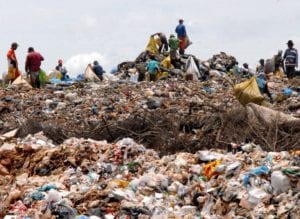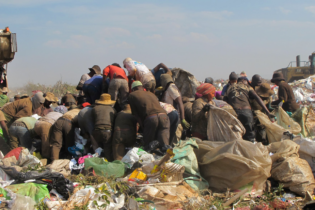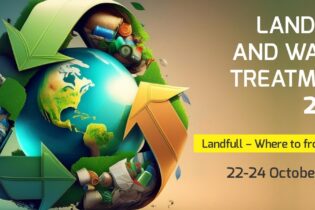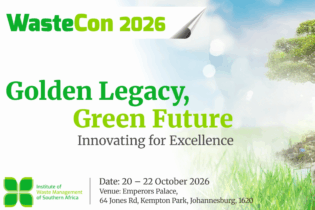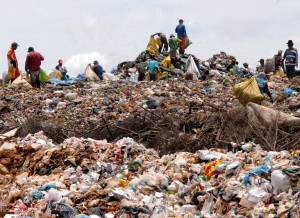
South Africa’s registered waste pickers will be integrated into the formal waste economy. Photo: Marcello Casal Jr
Integration or formalisation?
South Africa is not the first or the only country to deal with an informal waste sector. However South Africa faces a number of unique socio-economic and political circumstances that may complicate the integration of the informal sector into a formal secondary resources economy, reports the CSIR. Late last year the CSIR collected information from delegates who participated in one of two regional workshops held in Johannesburg and Cape Town. There was strong support for, and recognition of, the informal sector with 95% of respondents agreeing that the informal sector should be proactively integrated into the formal waste sector. While general consensus is that the informal sector should be integrated or formalised, the question remains at to how. What model of social inclusion of waste pickers would be most appropriate for South Africa, given the country’s set of social, economic and environmental conditions, that ensure increased recovery of recyclables, compliance with policy and planned EPR, while ensuring protection of livelihoods for informal pickers? Two opposing schools of thought, regarding integration of the informal sector into MSW Management in South Africa, have emerged: Option 1: South Africa continues to support the integration of the informal sector and their formalisation through the establishment of co-operatives and SMEs.Option 2: South Africa drives a formal sector integration approach, by placing the responsibility for integration and employment (labour intensive collection and sorting) on waste and recycling companies contracted to undertake formal kerbside collection programmes.
Noticeable tensions in approach include:| Model: | Integration | Formalisation |
| Driven by: | Municipality | Private sector |
| Regulation: | Regulate, control | No or self-regulate |
| Financial support: | Give support | Rent, incentivise |
| Recognition: | Ignore | Recognised role |
| Where: | Landfill | Source separation |
| Collection systems: | Competing | Complementary |
| Public perception: | Nuisance | Valuable role-player |
| Role: | Exploitation of poor | Low cost solution |
The way forward
As the CSIR conducted its research, four scenarios to “how” the informal sector is integrated into a national EPR scheme for waste streams emerged:- The informal sector is utilised in its current format, as a largely marginalised and unregulated community, recovering value at little to no cost to the value chain.
- The informal sector is recognised, but is left largely to operate in its current form, with some level of increased control and monitoring (e.g. registration) and with increased support (e.g. access to recyclables through source separation programmes, and industry-provided buy-back centres to increase the tonnages collected).
- Government and business push to formalise the informal sector through the establishment of co-operatives and SMEs, taking on the responsibility for business development support – incubation, mentoring and training. These emerging businesses are assigned geographic areas to “service”.
- The formal waste and recycling sector drive a labour intensive collection, sorting and recycling process, based on an employment model of absorbing the informal sector into businesses, as employees. In so doing, the sector also takes on the responsibility for training and capacity building.


